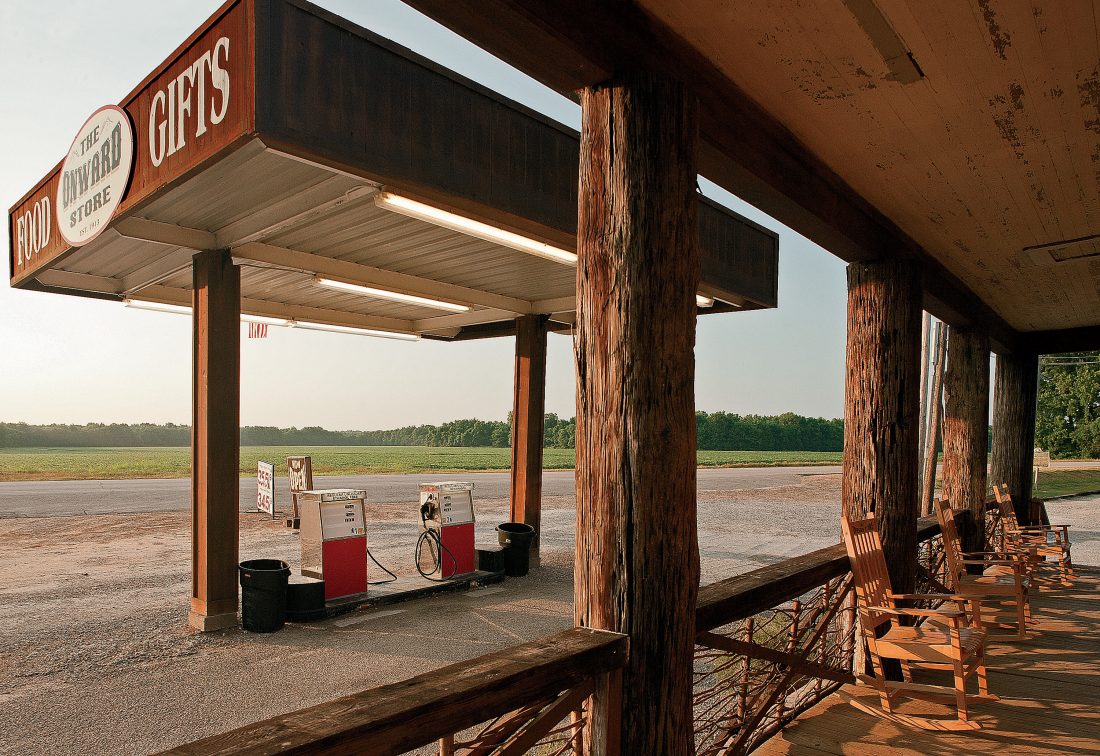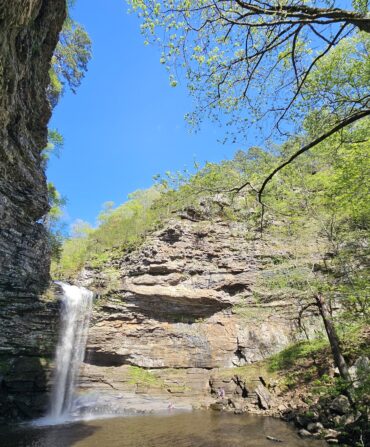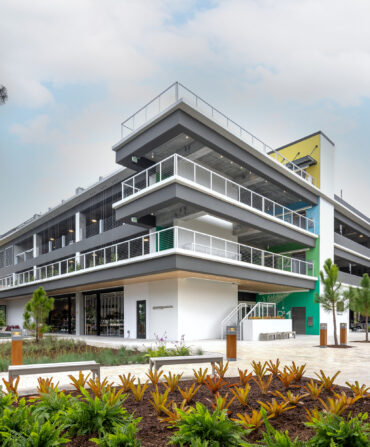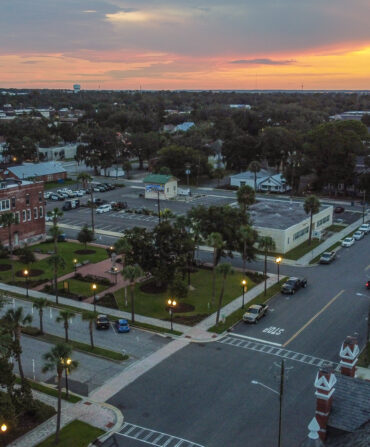When I was growing up in the Mississippi Delta, the Onward Store was one of many that dotted U.S. “Blues” Highway 61 between Memphis and Vicksburg. Former plantation commissaries, they bore the names of the tiny towns (Onward, Egremont, Panther Burn, Percy) where they were virtual headquarters for the residents and pit stops for the rest of us. We went for Cokes and cold beer, pickled eggs and a pay phone. But by the end of the twentieth century, as the land surrounding them required fewer and fewer people to cultivate, most fell into disrepair. The store at Onward, founded in 1913, was no exception.

Photo: Langdon Clay
Mollie VanDevender behind the counter.
So when my friend Mollie VanDevender, a former Miss Mississippi and an avid conservationist and hunter, bought the store last year, I was thrilled. On my frequent trips back and forth between New Orleans and my hometown of Greenville, Mississippi, the store serves as beer stop and beacon—the marker that tells me I’ll be pulling into my childhood driveway in another thirty minutes and where I also might be ordering up one of the world’s best burgers. Mollie and her husband, Billy, make a similar trek from their home in Jackson to their hunting camp a few miles from Onward. Over the course of the last two decades, we’d both watched the gas pumps dry up and the floorboards sag. “It needed,” Mollie says, “a whole lot of love.” While I was relieved that the burger would be saved, Mollie was attracted by the history of the place itself. Onward is the site of the most famous hunt in North America, as well as the birthplace of the country’s most famous toy, the teddy bear.
In the fall of 1902, Teddy Roosevelt came to the Delta in search of the black bear, one of the few trophies he’d yet to obtain. Legendary guide Holt Collier, a former slave who served as a Confederate scout for Nathan Bedford Forrest, organized the hunt. Collier, who’d killed more than three thousand bears, chose a spot just two miles from where the store now stands, but when he and his pack of dogs drove a bear to Roosevelt’s blind, it turned out that the group had broken for lunch. When the bear turned on Collier’s prize dog, Collier had no choice but to jump into the fray, clubbing the bear with his rifle butt. When Roosevelt returned to find the bear tethered to a tree, he refused to kill it. The story quickly captured the national imagination, and the stuffed “Teddy’s Bear” was born.
VanDevender, an accomplished bow hunter, had long been fascinated by the story’s romance, but she addressed the pragmatic needs first, replacing the store’s rotted floorboards with wood from a collapsed barn in nearby Rolling Fork and filling the pumps out front with gas. After adding a back dining room and deck, she hung photos of Roosevelt’s hunt on the walls alongside Audubon prints and period rifles. While staples like sardines and saltine packets still line the shelves, they now share space with scrimshaw knives and wooden bowls carved by Mississippi craftsmen.
“I went into it thinking I’d have a few antiques and gifts and sell the burger and a po’boy or two,” VanDevender says. Instead she’s created something of an entertainment mecca. Standing-room-only crowds come for live music on Saturday nights and bring their own bottles to dine on the dinner menu created by talented chef Nick Secoy, a Delta native most recently at Greenwood’s Viking Cooking School. Regional menu items such as fried quail and smoked catfish cakes have proved overwhelmingly popular, but to VanDevender’s great surprise, a recent tuna tartare special sold out.
At the store’s one-hundredth anniversary celebration this October, plans for a federally funded visitor’s center and museum commemorating Holt Collier and the hunt will be unveiled. Thanks to VanDevender, tourists who come to learn about the history of this storied region will now have a swell place to dine (and fill up). More important to the new owner are the jobs she’s providing in this historically poor county and the house accounts she keeps for the grateful locals. “I’m not a Delta girl,” she says, “but it’s cool to be up here and feel the warmth.”








